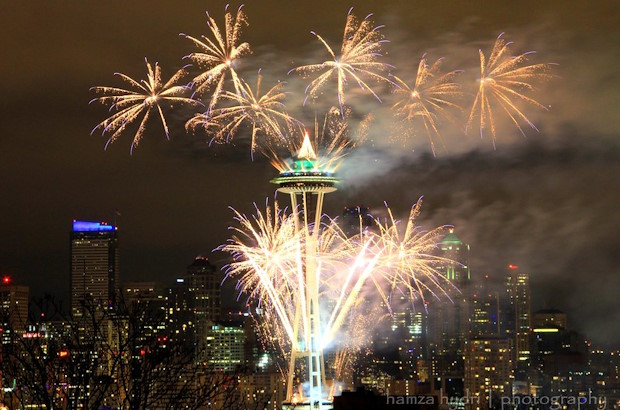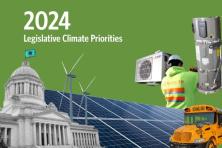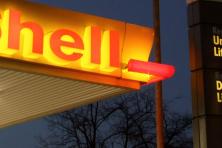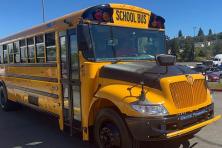THANK YOU to everyone who made their voice heard on this!
On December 12th, the Seattle City Council voted unanimously to pass a landmark climate policy to transition large multi-family and commercial buildings away from fossil fuels to clean electricity.
“Seattle’s Building Emission Performance Standard (BEPS) builds on years of efforts towards local ordinances and statewide climate-friendly codes in Washington and is a key part of the clean buildings puzzle,” said Deepa Sivarajan, Washington Local Policy Manager, Climate Solutions. “We’re excited to see the positive impacts of Seattle’s policy, especially in light of the Washington Legislature’s upcoming work to ensure additional funding for decarbonization of multifamily housing with a priority towards affordable housing, as well as developing a statewide energy upgrade navigator program.”
The policy, the Building Emissions Performance Standard (BEPS), is the first of its kind passed by a city in the Pacific Northwest and is one of the most ambitious in the nation. The BEPS policy was supported by labor unions, housing providers, and climate groups, including groups like MLK Labor Council, Housing Development Consortium, and Shift Zero. It is projected to create between 150 and 270 jobs annually, and expand career paths for women and BIPOC communities in Seattle. The BEPS policy is also expected to slash Seattle's total planet-warming building emissions 27% by mid-century.
“This is the kind of policy we envisioned when we rallied with our environmental allies last Earth Day in front of City Hall,” said Stefan Mortiz, Director of Strategic Affairs and Secretary-treasurer for UNITE HERE Local 8. “We believe this is an important step towards building climate resilience, and we are proud to be part of such a broad and powerful coalition of elected leaders, organizations and communities calling for its passage."
The vote comes just weeks after the Washington State Building Code Council finalized their landmark state building code, which almost entirely rules out the use of fossil fuels in new construction in the State. BEPS is one of the most significant electrification policies to pass since the 9th Circuit Court of Appeals’ misguided ruling on Berkeley’s clean building ordinance, which has had significant impact on similar policies.
Under the proposed policy, buildings over 20,000 square feet in Seattle will be required to start reducing their greenhouse gas emissions incrementally beginning in 2031, with all covered commercial buildings reaching net zero emissions by 2045 and all multifamily buildings by 2050. Buildings are the second largest source of greenhouse gas (GHG) emissions in the City of Seattle, and currently account for 37% of the city's climate pollution, with commercial and multifamily buildings making up the majority of these emissions. The policy allows for building owners to have multiple pathways to achieving their greenhouse gas reduction targets, offering flexibility to account for different building types and needs.
“We have the industry expertise and technology to make buildings part of the climate solution, and now Seattle's Building Emissions Performance Standard provides a pathway and market signal,” said Rachel Koller, Managing Director with Shift Zero. “Accelerating clean energy upgrades will deliver healthier buildings and reduce pollution in our communities, making a difference in day-to-day lives.”
Buildings are still the fastest-growing source of carbon emissions in Washington state. While recent changes to Washington’s energy codes and market trends have almost completely halted the construction of new buildings that use gas for space and water heating, emissions from existing buildings pose a significant barrier to reaching net zero-emissions. The health impacts from burning gas in buildings are also well documented. A new report from the Climate Investigations Center details the gas industry’s decades-long campaign to obscure the risks using Big Tobacco tactics.
“We are delighted by the Seattle City Council’s decision to pass the Building Emissions Performance Standard. We hope it sets a precedent for future Green New Deal policies,” said Shemona Moreno, Executive Director of 350 Seattle. “We need more climate policies like the BEPS; policies that meet Seattle’s climate goals while creating more green jobs, fostering climate resilience, affordable housing and transportation.”
Building performance standard policies continue to be a central part of climate policy efforts in cities across the US, and Seattle’s policy expands on Washington’s statewide building performance standard, which requires buildings to become more energy efficient over time, first passed in 2019 and expanded in 2022 to include benchmarking requirements for all buildings over 20,000 square feet including multifamily housing. A growing number of states have adopted and are considering building performance standard policies. Seattle’s BEPS, along with similar policies in New York City, Boston, Washington DC, and Colorado, are models for cities, counties, and states across the country to address a significant source of emissions from existing large buildings.
With deep gratitude to you for all you do for positive change.
Onward together!





